Double Global

How has the Double 11 Shopping Carnival impacted e-commerce globally ?
The Double 11 Shopping Carnival, also known as Singles' Day, is an annual event that originated in China and has become the world's largest online shopping festival. It falls on November 11th every year and was started by Alibaba in 2009. The event has had a significant impact on global e-commerce, both positively and negatively. In this article, we will explore the various ways in which the Double 11 Shopping Carnival has influenced e-commerce around the world. One of the most obvious impacts of the Double 11 Shopping Carnival on global e-commerce is the increase in sales and revenue. As more people participate in the event, retailers and brands from all over the world have seen a surge in their sales during this period. This has led to increased profits for these businesses and has helped them expand their reach globally. The success of the Double 11 Shopping Carnival has encouraged more countries to adopt e-commerce as a viable business model. Many countries have seen the potential of e-commerce and have started investing in developing their own online shopping platforms. This has led to the growth of e-commerce worldwide and has made it easier for consumers to access products from different parts of the world. The success of the Double 11 Shopping Carnival has also led to increased competition among e-commerce platforms. As more companies try to replicate the success of this event, they are forced to innovate and offer better services to attract customers. This has resulted in improved customer experiences and has pushed e-commerce platforms to become more efficient and effective. However, the massive scale of the Double 11 Shopping Carnival has also raised concerns about its environmental impact. The event generates a huge amount of waste, including packaging materials and unsold products. This has led to calls for more sustainable practices in e-commerce, such as reducing packaging waste and promoting recycling. Another challenge faced by small businesses due to the Double 11 Shopping Carnival is the increased competition from larger retailers and brands. These smaller businesses often struggle to compete with the discounts and promotions offered by bigger companies during the event. This can lead to a decline in their sales and revenue, making it difficult for them to survive in the highly competitive e-commerce market. In conclusion, the Double 11 Shopping Carnival has had a significant impact on global e-commerce. While it has brought about increased sales and revenue, global expansion of e-commerce, and competition among e-commerce platforms, it has also raised concerns about environmental issues and challenges for small businesses. As e-commerce continues to grow globally, it is important for businesses and consumers alike to consider these factors and work towards creating a more sustainable and inclusive e-commerce ecosystem.

What role does mobile shopping play in the success of Double 11 Shopping Carnival ?
Mobile shopping has significantly contributed to the success of the Double 11 Shopping Carnival by increasing accessibility, providing personalized experiences, integrating social media, and offering omnichannel experiences.

Can I customize the double-tap feature on my AirPods ?
To customize the double-tap feature on your AirPods, follow these steps: pair your AirPods with your iPhone or iPad, open the Settings app, select Bluetooth, find your AirPods in the list of devices, and customize the double-tap feature for each AirPod. You can choose between playing/pausing audio, skipping to the next track, going to the previous track, or activating Siri. Test your new settings by double-tapping your AirPods.

How sustainable is the current model of the Double 11 Shopping Carnival, considering issues like overconsumption and waste ?
The Double 11 Shopping Carnival, also known as Singles' Day, has become one of the world's largest online shopping events. Originating in China, it is held annually on November 11th and has grown exponentially since its inception by e-commerce giants like Alibaba and JD.com. However, the sustainability of this massive sales event is being questioned due to concerns over overconsumption and waste. Overconsumption is a major concern during the Double 11 event, with heavy marketing campaigns leading to impulse buying and consumers purchasing items they do not need. The deep discounts often encourage shoppers to buy more than they originally intended, contributing to a culture of overconsumption. Additionally, the environmental impact of the event is significant, with the production and shipping of goods consuming vast resources and energy. The surge in packaging and delivery services significantly increases greenhouse gas emissions and plastic waste. Waste issues are also prevalent during the Double 11 event. Many products are over-packaged to protect them during shipping or to appear more appealing, leading to increased waste. Some packaging materials are non-recyclable or difficult to recycle, adding to environmental concerns. A high volume of returned items results in wasted resources and additional waste from reverse logistics. Fast fashion and low-quality electronics sold during sales often have short lifespans, leading to earlier disposal and waste. However, there are attempts at sustainability during the Double 11 event. Some companies are using biodegradable or recyclable packaging to reduce environmental impact. There is an increasing number of sustainable and ethical brands participating in Double 11, promoting greener consumption. E-commerce platforms run campaigns to educate consumers about sustainable choices and the importance of responsible consumption. Initiatives to recycle packaging and old goods are being implemented to mitigate waste issues. In conclusion, the current model of the Double 11 Shopping Carnival raises valid concerns about overconsumption and waste. While the event drives significant economic activity and consumer enjoyment, steps towards greater sustainability are crucial for its long-term viability. Balancing commercial success with environmental responsibility is essential for the future of not just Double 11 but e-commerce as a whole.

How does the sales volume of Double 11 compare to other major shopping events like Black Friday or Cyber Monday ?
Double 11, also known as Singles' Day, is a shopping festival that originated in China and has become one of the largest online shopping events globally. In this article, we compare the sales volume of Double 11 to other significant shopping events like Black Friday and Cyber Monday. Double 11 consistently generates record-breaking sales figures, with Alibaba reporting a total transaction volume of over $75 billion during the event in 2020. It attracts millions of consumers from all over China and even internationally, involving various e-commerce platforms such as Tmall, Taobao, and JD.com. Retailers offer massive discounts, flash sales, coupons, and other promotional activities to attract customers, with some brands launching new products exclusively for Double 11. On the other hand, Black Friday generates substantial sales revenue but is still significantly lower than Double 11's. In 2020, US retailers reported an estimated $9 billion in online sales on Black Friday. The event primarily targets US consumers but has gained popularity in other countries as well. It involves both brick-and-mortar stores and online retailers offering discounts on various products, doorbuster deals, and limited-time offers to attract customers. Cyber Monday is considered one of the biggest online shopping days in the US but its sales volume is still much lower than Double 11's. In 2020, US retailers reported an estimated $10.8 billion in online sales on Cyber Monday. The event primarily targets US consumers but has gained popularity worldwide mainly involving online retailers offering deals and promotions on their websites or through email marketing campaigns. In conclusion, while all three shopping events generate significant sales revenue for retailers and provide opportunities for consumers to save money on their purchases, Double 11 stands out as the largest online shopping event globally in terms of sales volume and participation due to its massive scale, extensive promotions offered by retailers, and ability to cater to a broad audience both domestically and internationally.

How has the COVID-19 pandemic affected this year's Double 11 Shopping Carnival ?
The COVID-19 pandemic has significantly impacted the annual Double 11 Shopping Carnival, one of China's largest online shopping events. The event has seen an increase in sales due to a surge in online shopping as people stay at home. Consumer behavior has also changed, with many prioritizing essential items over luxury purchases. Sellers face challenges in managing inventory levels and adapting marketing strategies. Health and safety concerns have been raised, leading to measures such as contactless delivery and enhanced sanitation practices. Despite these challenges, the event has still generated record-breaking sales figures.

What are the biggest trends in consumer behavior during the Double 11 Shopping Carnival ?
The Double 11 Shopping Carnival, also known as Singles' Day, showcases the latest trends in consumer behavior. Key trends include: 1. **Rise of Mobile Shopping** with increased usage, mobile payments, and social media influence. 2. **Personalization and Customization** through data-driven recommendations, customized products, and interactive experiences. 3. **Omnichannel Retailing** providing integrated experiences, using stores as showrooms, and advanced inventory management. 4. **Sustainable and Eco-friendly Shopping** with a focus on green products, reduced packaging, and promoting the circular economy. 5. **Live Streaming and Influencer Marketing** leveraging live commerce, influencer partnerships, and interactive features. 6. **Data-Driven Decision Making** among consumers using price intelligence, review analysis, and predictive analytics. These trends highlight the impact of technology and changing values on consumer behavior during one of the world's largest shopping events.
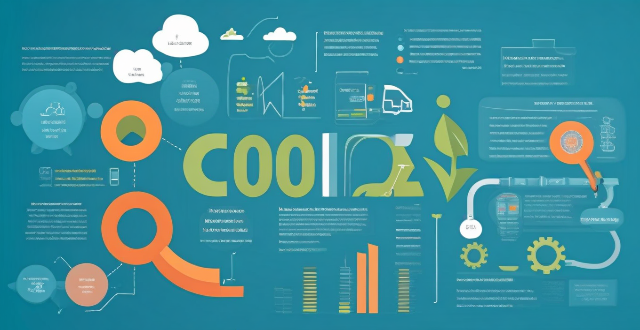
How can international cooperation on climate change contribute to global security ?
International cooperation on climate change is vital for global security. It helps mitigate environmental disasters, promotes economic stability and growth, enhances social cohesion and peace, facilitates technology and knowledge sharing, and strengthens global governance and diplomacy. Through joint efforts, nations can address one of the most pressing challenges of our time and secure a safer future for all.
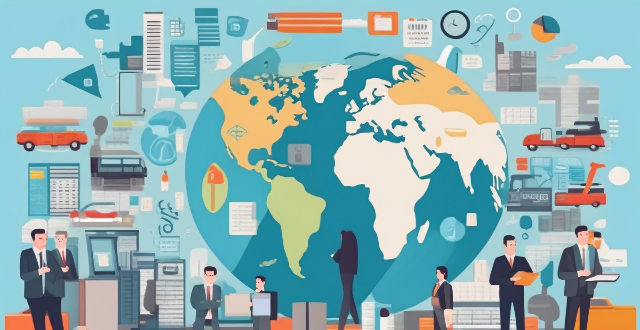
What are the latest trends in the global economy ?
The global economy is influenced by various interconnected factors including digital transformation, sustainability, global trade dynamics, monetary policies, and the rising influence of emerging markets. These trends are reshaping industries, fostering innovation, and influencing economic growth and policies worldwide.

How do I control the volume and playback on AirPods ?
To control volume and playback on AirPods, use your device's controls, Siri, or customize double-tap gestures. Adjust volume directly from your device or use Siri to change it verbally. Play/pause music by double-tapping an AirPod or telling Siri. Skip tracks with triple-tap gestures or voice commands. Customize double-tap gestures in settings for more control without using your device or Siri.
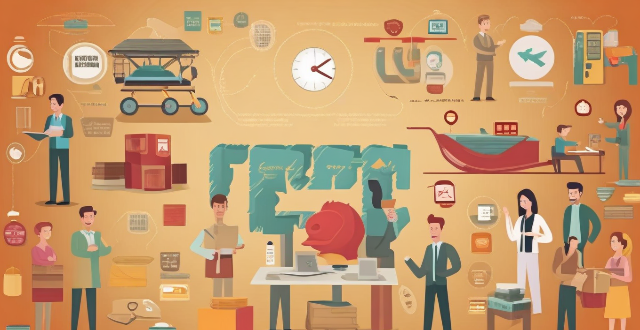
What strategies do retailers use to attract customers during the Double 11 Shopping Carnival ?
Retailers employ various strategies to attract customers during the Double 11 Shopping Carnival, including pre-sale promotions, limited-time offers, free shipping and returns, bundling products, social media promotions, personalization and customization, and excellent customer service. These tactics aim to create excitement, build trust, and provide a tailored shopping experience for customers, ultimately maximizing sales and fostering long-term relationships.

How does climate variability affect global weather patterns ?
The impact of climate variability on global weather patterns is substantial, affecting temperature, precipitation, wind patterns, and extreme weather events. Key influences include El Niño and La Niña phases, monsoon systems, altered rainfall distribution, jet stream variations, tropical cyclones, heatwaves, cold spells, storms, floods, and droughts. Long-term climate trends like global warming also significantly affect weather patterns. Understanding these interactions is crucial for predicting future conditions and addressing climate-related challenges.

How do climate data analysis contribute to understanding global warming ?
Climate data analysis is essential for understanding global warming, its causes, effects, and potential solutions. Scientists collect temperature records, carbon dioxide concentrations, and sea level data to identify trends, establish correlations, and create predictive models. These efforts help develop effective strategies to mitigate the impacts of global warming.

What role does natural gas play in the global energy market ?
Natural gas is a key player in the global energy market due to its environmental advantages, economic benefits, contributions to energy security, technological advancements, and versatile applications across sectors.

How does global shopping contribute to economy ?
Global shopping, or cross-border e-commerce, has become a crucial aspect of the global economy. It involves buying and selling goods and services across national borders through online platforms. This phenomenon has not only revolutionized shopping but also significantly contributed to economic growth worldwide. Here are some ways global shopping boosts the global economy: 1. Increased consumer spending: Global shopping provides consumers with access to a wide range of products from around the world, leading to higher consumer spending, which is a key driver of economic growth. 2. Benefits for sellers: Businesses can reach new customers and expand their market share by tapping into international markets, increasing revenue and profitability. 3. Job creation and employment opportunities: The rise of global shopping has given birth to numerous jobs in various sectors such as logistics, customer service, marketing, and technology. 4. Boosting local economies: Local businesses can reach customers beyond their geographical boundaries by exporting their products globally, generating revenue that helps sustain their operations and contribute to the local economy. 5. Encouraging innovation and competition: The global marketplace created by cross-border e-commerce encourages businesses to innovate and improve their products to stay competitive, benefiting consumers by providing them with high-quality products at competitive prices. 6. Fostering international trade relations: Global shopping promotes cooperation between nations by facilitating trade agreements and reducing barriers to entry for businesses looking to expand internationally.

What is the role of technology in improving global health outcomes ?
Technology plays a crucial role in improving global health outcomes through advanced medical equipment, digital health solutions, and more. It has revolutionized diagnosis, treatment, disease surveillance, prevention, accessibility, affordability of healthcare services, research and development initiatives, and health literacy and education. Technology's impact on global health will continue to grow positively as it evolves at a rapid pace.
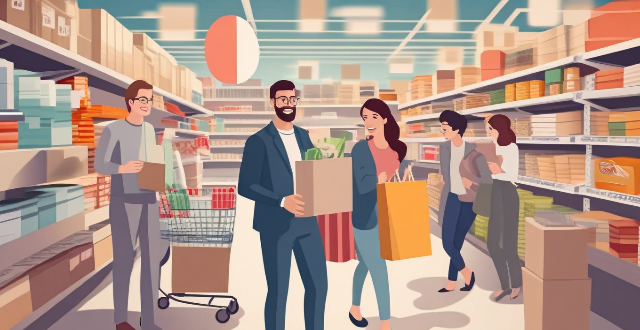
How does global shopping affect local businesses ?
Global shopping has become increasingly popular due to the rise of e-commerce platforms and international shipping services. While it offers consumers a wider range of products and competitive prices, it also poses challenges for local businesses such as increased market competition, job displacement, cultural homogenization, environmental impact, intellectual property rights issues, and economic dependency. As consumers continue to embrace global shopping, it is crucial for local businesses to adapt and find ways to differentiate themselves in order to remain competitive and sustainable in the long run.
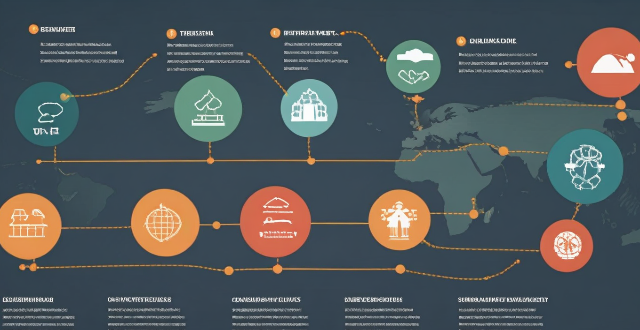
How does TCFD align with other global reporting initiatives like the Global Reporting Initiative (GRI) ?
The Task Force on Climate-related Financial Disclosures (TCFD) and the Global Reporting Initiative (GRI) are two global sustainability reporting frameworks that share several key points of alignment. Both provide guidelines for companies to report on their sustainability performance, with TCFD focusing specifically on climate-related financial disclosures and GRI covering a broader range of sustainability issues. They also emphasize the importance of materiality assessment, stakeholder engagement, risk management, and climate change disclosures in determining which aspects are most relevant to an organization's business model and strategy. By following both frameworks, companies can provide a more comprehensive picture of their sustainability performance and demonstrate their commitment to addressing climate change and other sustainability issues.

How do communication satellites improve global connectivity ?
Communication satellites play a crucial role in enhancing global connectivity by providing reliable and high-speed internet access to remote areas, facilitating international communication, and supporting various applications such as telemedicine, e-learning, and disaster management. They cover vast geographic areas, including mountainous regions, deserts, and oceans, where traditional infrastructure is not feasible or cost-effective. Satellite internet services can be deployed quickly, often within days or weeks, compared to months or years required for terrestrial networks. They enable seamless communication across national borders, fostering global cooperation and collaboration. Newer generations of low Earth orbit (LEO) satellites reduce latency by orbiting closer to Earth, improving the speed and quality of international communication. Satellites facilitate telemedicine by providing real-time video conferencing between patients and healthcare professionals located far apart. They enable e-learning by connecting students in remote areas with educational resources and teachers around the world. During natural disasters or crises, satellites provide critical communication channels for emergency response teams and affected communities.

What are the current global health challenges ?
The world is facing a multitude of health challenges that require immediate attention and action, including infectious diseases, non-communicable diseases, mental health issues, and environmental health hazards. Infectious diseases such as COVID-19, HIV/AIDS, tuberculosis, and malaria continue to be a major threat to global health. Non-communicable diseases like cardiovascular diseases, cancer, diabetes, and chronic respiratory diseases are becoming increasingly prevalent globally. Mental health disorders, including depression, anxiety disorders, and substance abuse, are a growing concern worldwide. Environmental factors such as air pollution, water pollution, climate change, and natural disasters also pose significant risks to human health.

Is global shopping more convenient than local shopping ?
Global shopping, also known as cross-border e-commerce, has become increasingly popular in recent years. It allows consumers to purchase products from different countries and have them delivered to their doorsteps. However, is it really more convenient than local shopping? This article explores the advantages and disadvantages of global shopping and concludes that whether it's more convenient depends on various factors such as product availability, pricing, delivery times, shipping costs, and customs duties. While global shopping offers a wider range of products and potentially lower prices, it also comes with longer delivery times, higher shipping costs, and potential additional charges like customs duties. Therefore, consumers should carefully consider these factors before deciding which option is most convenient for them.

How do Chinese consumers typically celebrate Double 11 Shopping Carnival ?
The Double 11 Shopping Carnival, also known as Singles' Day, is the world's largest online and offline shopping day. It originated in China and is celebrated on November 11th each year. Chinese consumers typically celebrate this event by engaging in various activities and shopping sprees such as adding items to their wishlist, setting budgets, following their favorite brands, shopping online, participating in flash sales, watching live streams, shopping offline, sharing their experience, exchanging or returning items, and planning for next year's event.

Can global shopping help in finding unique and rare products ?
Global shopping allows consumers to access a wide range of unique and rare products from diverse markets around the world. By expanding your shopping horizons beyond your local market, you increase your chances of discovering unusual items directly from manufacturers and artisans at potentially lower costs. To find these one-of-a-kind products through global shopping, research potential countries or regions known for producing desired items, use specialized search engines and directories, follow social media influencers and bloggers, and attend international trade shows and expos. However, challenges such as longer shipping times, higher costs, quality assurance, and ethical considerations must be taken into account.